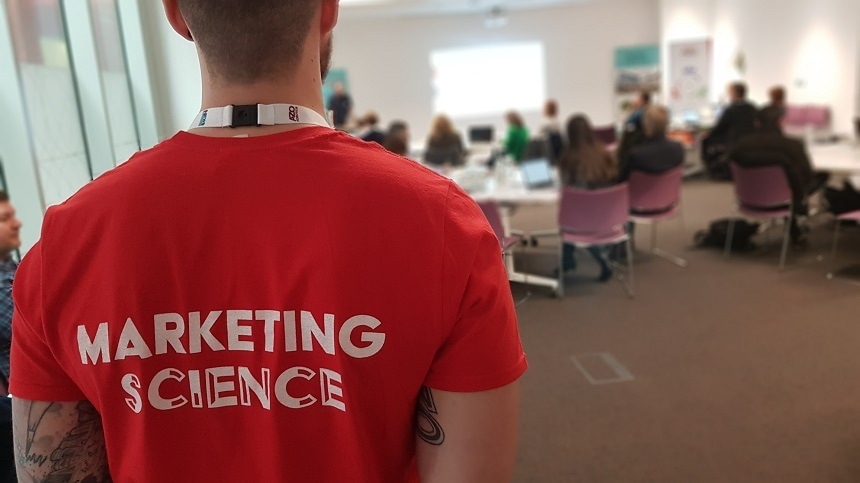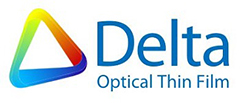
SEO Questions from the AZoNetwork Manchester Workshop
AZoNetwork recently hosted our first open SEO workshop in Manchester where we shared our insights into improving your site’s positioning in search engines. We talked with existing customers and new acquaintances, and fielded a lot of interesting questions.
The workshop was expertly co-ordinated and presented by the AZoNetwork SEO team, led by Dave Cockett, Head of SEO and Web Services. The morning was a mixture of informative presentations, highly interactive tasks and a lot of inquisitive questions as we laid out our transparent and educative process.
On-Site SEO Overview and Meta Data Task
After a short introduction, Dave kicked off with an on-site overview where we reviewed keyword consistency within a case study website. Dave then demonstrated a range of tools which help with the fundamentals of SEO, including:
- Planning Keywords
- Checking Meta Data
- Checking Site Age and Server Neighbours
- Calculating the Number of Indexed Pages
- Measuring Search Traffic and Performance
- Gaining Insights on Page Speed and Responsiveness
We then moved on to a health check task as well as learning how to benchmark and demonstrate improvements through using analytics.
The audience was thoroughly engaged and encouraged to interact by asking their own SEO questions and highlight any particular challenges which they face.
Below we share some of the issues and provide a few brief answers to the most common questions that we were asked at our SEO workshop.

Should I be consistent with keywords?
Yes, particularly within pages. This helps the search engine recognise that the page is relevant to that particular term.
Can I use different variations of keywords?
Absolutely. People will typically type in a number of search terms to find what they’re looking for. Somebody looking to purchase a new tool for their research facility might try ‘OEM spectrometers’, or ‘OEM Spectrometer suppliers’. You won’t be penalised for casting a wider net to try and capture more of this potential traffic.
Should each page have unique keywords?
Yes, but bear in mind that you can use variations. If you are putting forward multiple pages with the same keyword, Google won’t know which page to prioritise. You would effectively be competing with yourself.
Can Google search bots crawl through gated content?
Google’s search bots, or spiders, cannot navigate through gated content. The form fill that allows you to track leads will also act as a barrier to entry for search bots. They cannot fill out the form so will not read the content.
Are there special cases where content should be password-protected despite poor SEO performance?
Potentially. If this is an issue of regulation or compliance, a disclaimer will often do the job without hindering your SEO efforts.
We have gated PDFs, will Google be unable to read these pages?
Yes, Google struggles to read PDFs in the same way it would a page. A way to combat this is to utilize PDFs as resources for your own blog posts, driving traffic to both the application page and a keyword page.
Do I need to redesign my site for SEO?
No. The meta title and data can be easily edited on existing sites.
How do images and rich content affect Google’s performance?
They can be a really positive factor, provided they are captioned and described appropriately.
SEO seems like UX and Google performance are at odds. How do you counter this?
SEO doesn’t have to come at the expense of user-experience. In fact, Google will factor in the usability of your site into the rankings. Provided you are making the most of the meta data and providing fresh content, regularly, there should be no conflict of interest between SEO and UX.
How important is blog content? How do you decide what users want to read?
Blog content is an extremely important factor in any good SEO campaign. Each post can be individually optimised to compete for rankings while driving traffic to your priority pages. Many companies use their blog, or news, section as an afterthought to share information about company events or changes. This can be a powerful tool for engagement, but without optimization, it is unlikely to compete for rankings. The best way to choose what your readers want to read is to base your content on your keyword research.
Google only checks sites infrequently. Does it ignore pages that haven’t been changed?
If no changes are registered on your site, Google won’t need to recrawl through its pages. This is another reason why uploading new content regularly is so important. It’s an indicator for Google to check your site’s changes and potentially change your positioning in search rankings.
Could you explain mobile first?
This concept is a little misleading as people tend to think that mobile-pages are ranked higher than desktops automatically. Google prioritises pages that are responsive to the screen size, i.e. loading time. It will not penalize sites that are not mobile-friendly, but you may be limiting traffic to your site from mobile users if your site isn’t user friendly or responsive to mobile screens.
How many indexed pages is good?
Generally: the more the better. Search engines use the size of your site as one of the indicators of your authority. There’s no hard and fast rule about this, as relevance trumps site size. Having a lot of indexed pages that are irrelevant will harm your SEO performance. Focus on building your site with fresh, relevant content.
Does my site age change when we update our website and why is age a factor in SEO?
Your site age is dated from the registry of your domain name, so updates to an existing domain will not alter the age of your site.
How do I track the performance of my keyword implementation?
Once you’ve run your keyword research, perform a benchmark report to determine your position in the results for each relevant search. Run subsequent reports every month after you’ve implemented these changes to track your progress.
What tools can I use to find out my keywords?
Google’s keyword planner is an excellent tool to find keywords, but there is other software available too.
SEO Summary
Having previously run the workshop as a closed internal session at several client’s global Sales & Marketing meetings, we decided to bring the format to an open forum available to anyone working within Scientific Communications.
Given the complimentary feedback on the Manchester SEO Workshop, we will now be looking at other venues to hold future open meetings. Please let us know where you would like the team to head next.
Thoughts from the Floor
“It was very informative & conveyed the information at the right level for me as someone who has some knowledge, but usually contracts out this kind of work. I think that by improving my understanding of SEO will help with future developments of our website. The AZoNetwork team members who were helping out during the exercises were also great and had a good understanding of the subject matter.” Carl Peachey, Communications Manager, Trustech
Related SEO Testimonials
-

Organic traffic has increased 46.34% since working with the SEO team, but most importantly, both the quality and the quantity has improved considerably, resulting not only in more sales, but bigger sales too!
Jo Talbot Tecman Specialty Materials
-

We have seen an increase in both web generated enquiries and telephone traffic on products that are targeted. Lead/Enquiry generation is now starting to overtake us, which is a great problem to have!
Andy Adams Masteel
-

Over the past 6 months our organic traffic has increased 17.51% compared to the same period last year and the number of contact form submissions we’ve seen has risen from 0 in that period to 23
Oliver Pust Delta Optical Thin Film